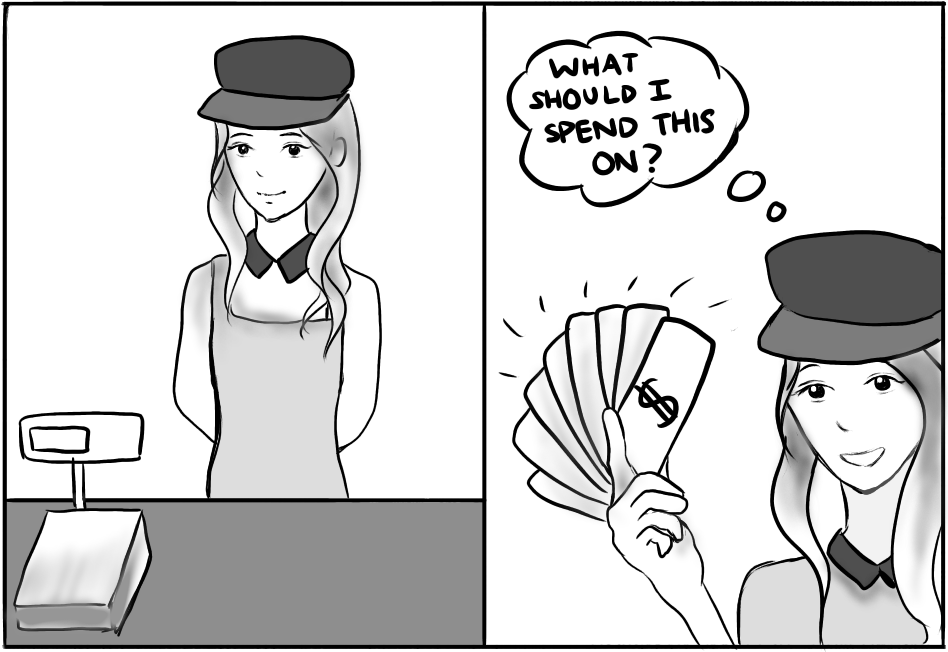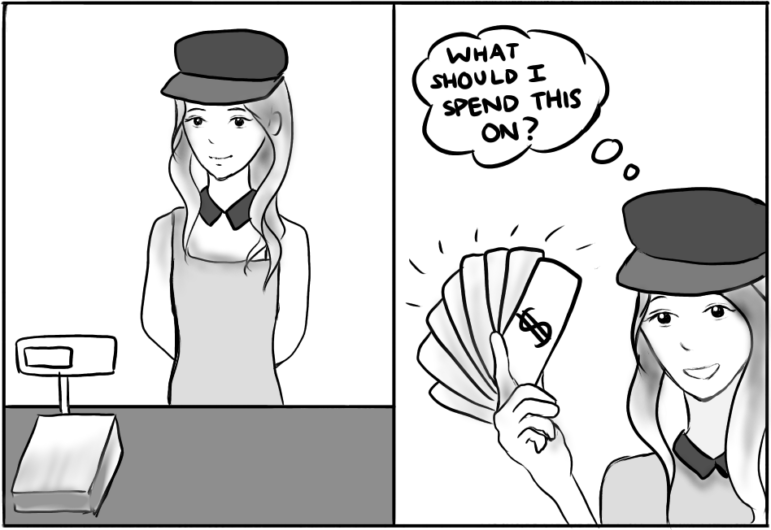

A student walks into their workplace, awaiting the appearance of their boss while they head over to clock in, ready for a few hours of work. They hang up their coat in the closet and find their boss, preparing for the first task of the day.
Once, this was an experience shared by many teenagers, but the number of teens working is declining. Despite the numerous potential benefits of working, only around two thirds of all high school students have a part time job, according to Business Insider, reaching the lowest teen employment rate ever. The number is projected to only continue declining, and it has been falling since 1979, when nearly 60 percent of all students had a part-time job.
For many students, the payoff is not worth the time and effort required of a job.
“I’ve never really had a need for extra money,” said senior Harrison Nicholls. “It would just take time that I could use for other things.”
Sophomore Ian Koe agrees that time is a major factor.
“[During school,] I have a lot on my plate … I don’t feel like I’d have time for a part time job,” said Koe who spends his summers volunteering at the Marine Science Institute. “Even if I did, I kind of prefer to spend that time doing something that I enjoy or something just to relax.”
Over the summer, Koe chose to volunteer instead of working because he wanted to pursue his passion for marine biology. Similarly, senior Naomi Schroeter enjoys volunteering at the Peninsula Humane Society in the wildlife department.
“I really like the people I work with because we all have common interests,” Schroeter said, “which is, you know…taking care of animals that don’t love you back.”
Schroeter began volunteering at the Humane Society after a chance encounter while petting cats there, and she has found passion in what she does.
“[Because] of this experience, I think I want to try to go for a vet degree,” she said.
Yet the main focus of their volunteer work is personal preference, not college applications.
“I know that there’s a lot of … colleges [that are] looking for, like, ‘what are you doing to impact the community,’ like volunteering,” said Koe. “[But] that wasn’t really my goal.”
“[Volunteering for my college applications] wasn’t really the reason I started but it is definitely a benefit,” Schroeter said.
Despite this, Schroeter isn’t completely satisfied with her position.
“I wish I had money,” she said.
And she’s not the only one. Many students get jobs for that specific reason. For senior Angela McNevin, having a job at Rockin’ Jump means having a level of freedom through the money she makes.
“Being able to buy my own things and kind of take care of myself is really important to me just because … I’ve always wanted to not be a burden to other people [financially],” McNevin said. “[Getting a job] was basically to help support my family, and then also just make money for myself so I could be individual … and go into the world.”
“Growing up I wouldn’t really ask my parents for much because I didn’t really know what it felt like to work,” said Nathalye Figueroa, who spent last summer working full-time at McDonald’s.
“So now getting the experience of working and knowing how hard it is to get my own money, I kind of feel proud.”
Junior Dylan Graf experienced a similar feeling of pride.
“[It] was really awesome to be able to have something that important and I’m able to just kind of call mine and know that I worked hard for,” said Graf, who put the money he earned towards a car.
But Figueroa still quit her job at summer’s end: “With school, I feel like I would that would just stack on stress. I have sports, extracurricular activities and then going to the job would just be too much.”
Between students adding on to their academic plates and rising qualification requirements in the workplace, it’s plausible the number of teenagers with jobs will continue to decrease. Given that many teens find advantages in volunteering that are less common in jobs, whether it helps them with college, or a more specific career goal, the future of teenage jobs remains uncertain.




